State-Specific Fake ID Designs: What to Know Before Buying
State-Specific Fake ID Designs: What to Know Before Buying
The use of fake IDs is a common phenomenon in the United States, especially by minors trying to gain access to restricted services such as purchasing alcohol, entering clubs, or gambling. However, the success of a fake ID depends largely on how accurately it replicates the original ID, which can vary greatly from state to state. Each state has its own unique design elements, security features, and regulations, which makes it more challenging to create a convincing fake ID. In this article, we'll explore state-specific fake ID designs and their differences, focusing on five major states: Oregon, Rhode Island, South Dakota, Texas, and Vermont.
Oregon Fake IDs
Oregon IDs are known to have the most complex designs, making them difficult for counterfeiters to accurately replicate. Modern Oregon fake IDs must mimic detailed backgrounds of the state's landscape, including images of Mount Hood and Crater Lake. A transparent "ghost" is also embedded in the ID holder's photo to make it even more difficult to forge. In addition, real Oregon driver's licenses also use tactile security features such as raised text and numbers, which are often difficult for fake ID manufacturers to perfectly replicate.
Additionally, the Oregon ID card features ultraviolet (UV) features visible under a black light, including the state outline and other intricate designs. A high-quality Oregon fake ID card must include these UV features; otherwise, a bodyguard or law enforcement officer using UV light would easily spot it.
Rhode Island Fake ID Card
The Rhode Island fake ID card is another design that presents a challenge to counterfeiters. The official Rhode Island ID card features the state flag prominently, as well as an intricate hologram that changes as the card is tilted. The state's ID card also features microprinting that is nearly invisible to the naked eye, but is critical to verifying authenticity.
A convincing Rhode Island fake ID card must display these holographic and microprint details correctly to pass inspection. In particular, microprinting often includes a repeating pattern of the state motto or state name, which may immediately raise suspicion if not included. High-quality counterfeiters often try to replicate these tiny details using specialized printing techniques, but many fake ID cards fail when carefully examined under a magnifying glass.
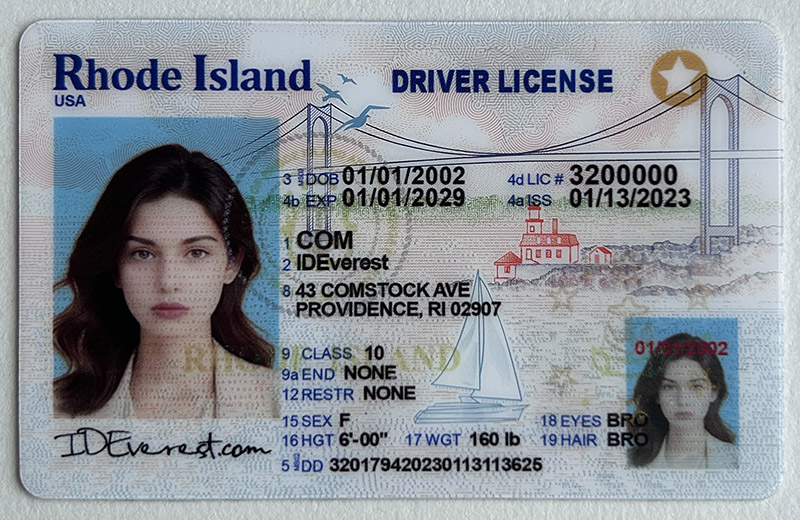
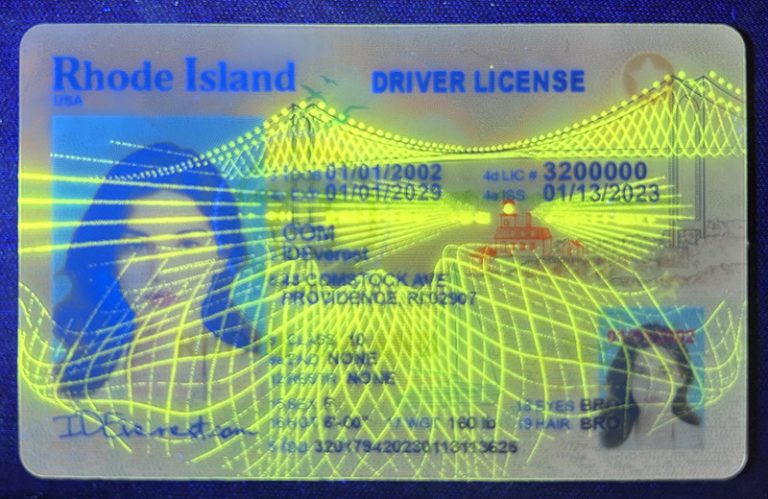
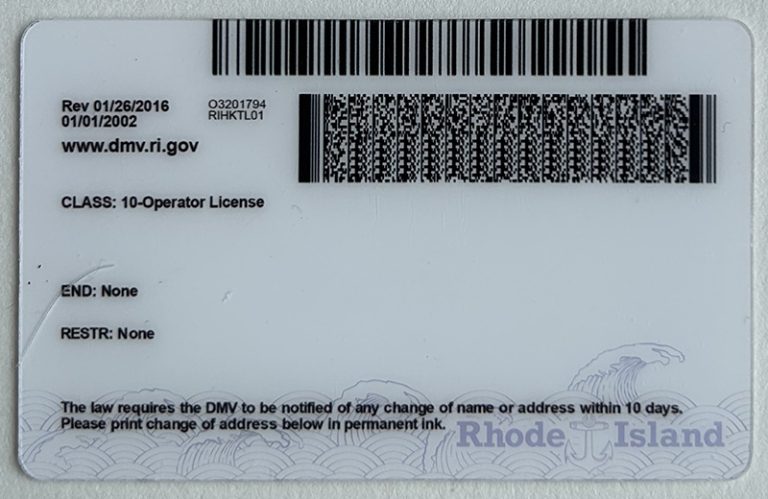
South Dakota Fake ID Card
South Dakota fake ID cards are often sought after because authentic ID cards from the state feature unique design elements that make them stand out. South Dakota incorporates images of Mount Rushmore and the state's outline into its ID. There is also a prominent security feature where a changing image of Mount Rushmore can be seen when the ID is tilted.
In addition, South Dakota IDs feature laser-engraved tactile features, a "ghost image" of the cardholder, and a barcode containing personal information that can be scanned by law enforcement or businesses to verify the ID. Fake South Dakota IDs that do not include these features are easy to spot, especially in situations where scanning a barcode is standard procedure, such as in certain bars and clubs.
Texas Fake IDs
Texas is a large state, so Texas fake IDs are among the most widely produced IDs. However, Texas driver's licenses are filled with sophisticated security features designed to thwart counterfeiters. One of the most notable features is the use of a star-shaped cutout on the ID that is difficult to replicate accurately. This cutout is transparent and located on the surface of the ID, so a Texas fake ID without this feature will immediately raise red flags.
Texas also includes multiple ghost images of the cardholder's photo and overlapping data that is visible under UV light. In addition, "Texas" will appear laser-engraved over the cardholder's photo. A high-quality Texas fake ID needs to include all of these elements to avoid detection. Many low-quality fakes omit these key details, making them easily identifiable by bouncers or store clerks.
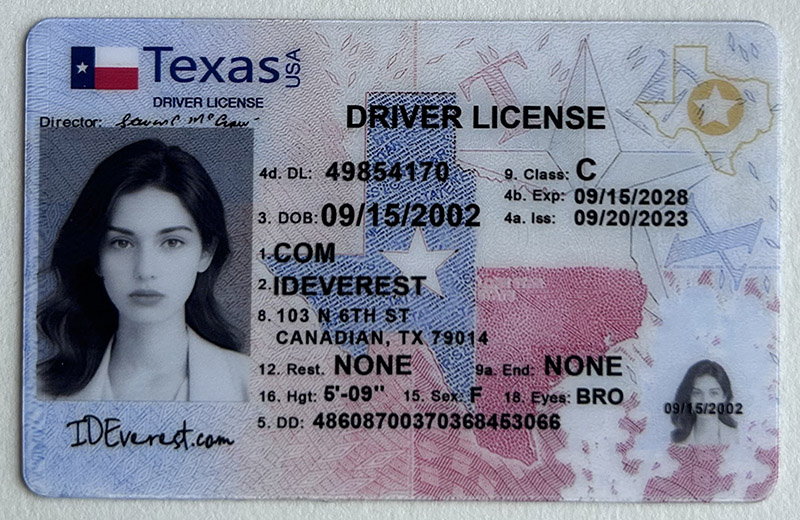
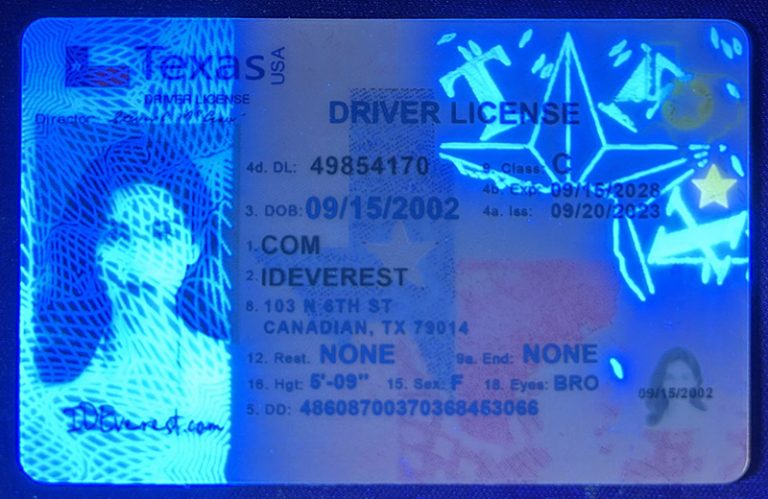
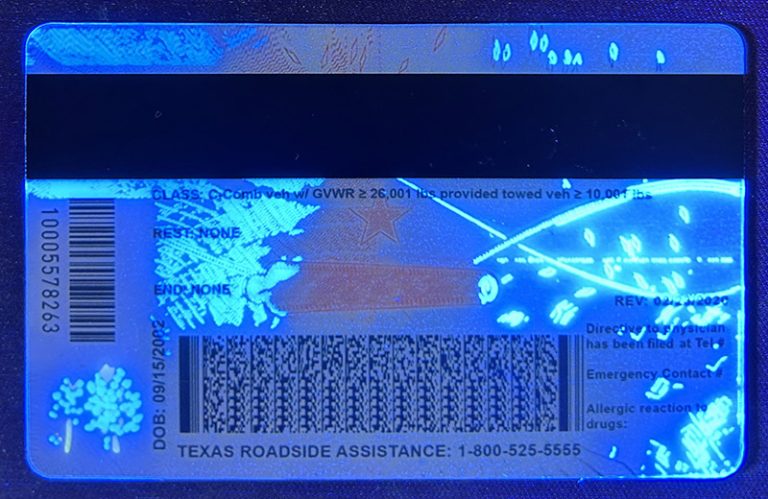
Vermont Fake ID Cards
Vermont's driver's licenses are another state ID card that poses a significant challenge to counterfeiters. Vermont fake ID cards must replicate the state's official ID card, which includes images of a lighthouse and maple leaf as part of the background. Vermont ID cards also embed a "ghost" photo of the cardholder and holographic elements that change when viewed from different angles.
One of the main features of a genuine Vermont ID card is the cardholder's name and date of birth in raised lettering, which can be felt by touch. Additionally, Vermont has introduced UV ink that can only be seen under ultraviolet light, and details such as the state seal can be seen under these conditions. A Vermont fake ID card that does not include these tactile and UV elements will most likely fail basic tests performed by security personnel or scanning equipment.
How to Identify a Bad Fake ID Card
While state-specific designs add to the complexity of counterfeiting an ID, there are some general red flags that can help identify a bad fake ID. The first thing to check is the texture and feel of the ID card -- many states, such as Vermont and Oregon, use raised lettering or specific materials that are difficult to replicate. Another is holographic features that change when the ID is tilted; inferior fake IDs often omit these features or use inferior stickers that don't change in appearance.
In addition, many states now have UV-sensitive designs that are invisible under normal lighting conditions but visible under a black light. The absence of these UV markings can give away a fake ID. For example, a fake Texas ID lacks a UV-sensitive star pattern that would immediately signal to the user that the ID is not genuine.
Finally, barcode scanning is becoming increasingly popular for verifying IDs. Fake IDs that don't have the correct information encoded in the barcode, or don't have a readable barcode at all, are quickly flagged by scanners in liquor stores, clubs, and other venues. For example, a fake South Dakota ID that fails a barcode scan would be immediately flagged as fake.
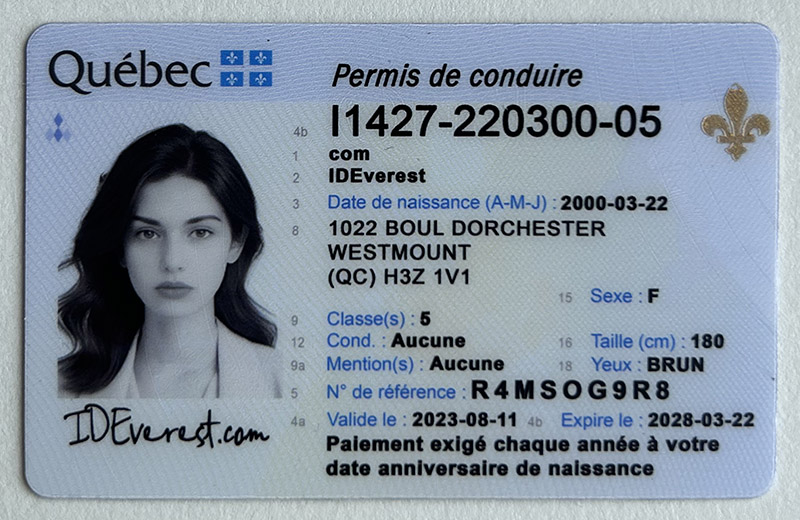 Scannable Fake Quebec Driver's
Scannable Fake Quebec Driver's
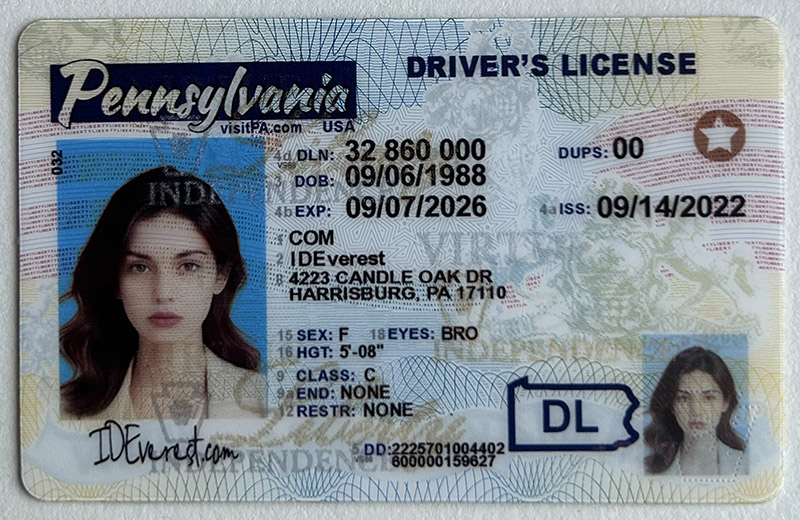 Scannable Fake Pennsylvania Dr
Scannable Fake Pennsylvania Dr
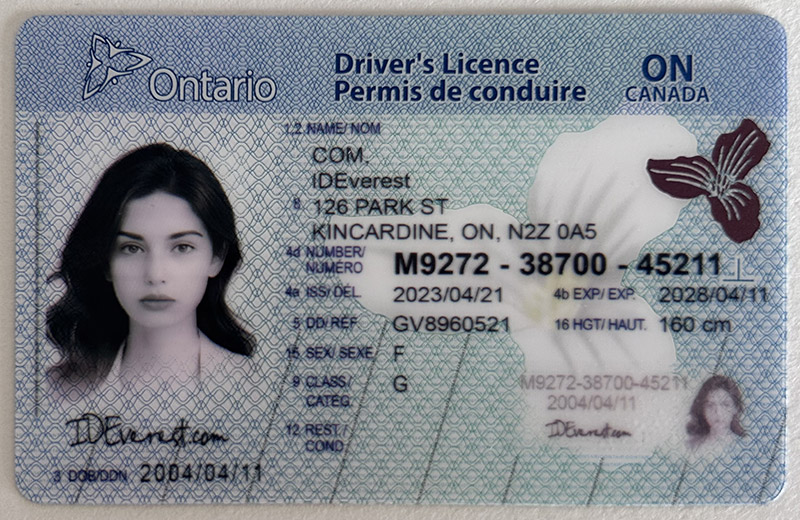 Scannable Fake Ontario Driver'
Scannable Fake Ontario Driver'
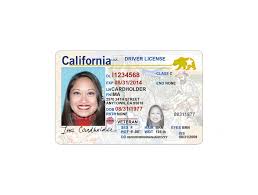 scannable Fake NorthCarolina D
scannable Fake NorthCarolina D